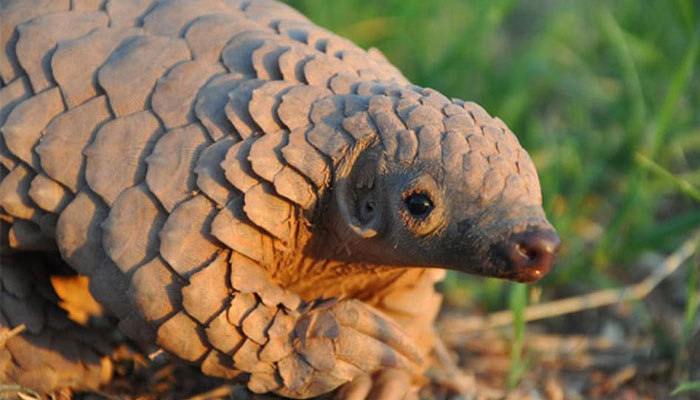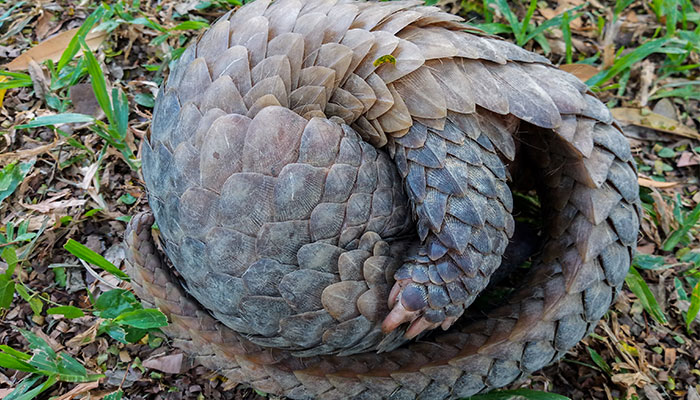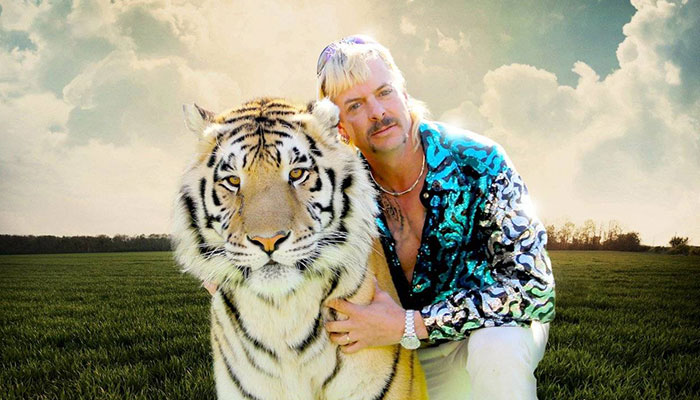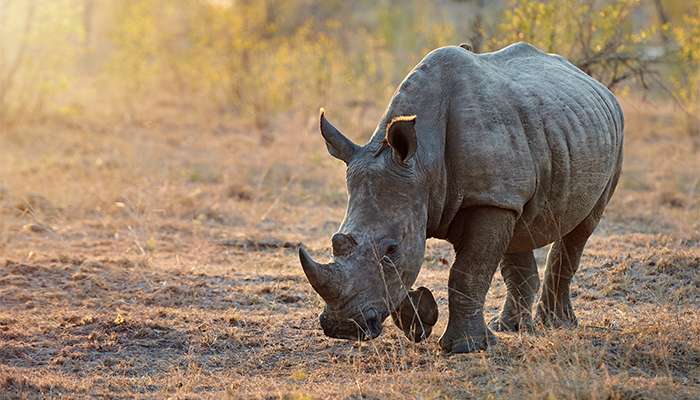The saying 'there is no such thing as bad publicity' may hold true for some, but for the shy pangolin an increasing public profile comes at a terrible cost.

Threatened: Poachers may be locating pangolin species before scientists have the chance to name, let alone study, them. Photo credit: Maria Diekmann/Rare and Endangered Species Trust
Chances are, by the time you finish reading this article a pangolin will have lost its life as current estimates indicate one is poached every five minutes. Over a million were smuggled in the past decade, making the pangolin the most trafficked non-human mammal on Earth.
Given its potential role in the origins of the COVID-19 pandemic, it has also been catapulted into the world spotlight.
What’s a pangolin?
The pangolin, or ‘scaly anteater', is covered in scales made of keratin – the same substance comprising human hair and fingernails, and rhino horn.
With eight species recognised in current taxonomy (four in Asia, four in Africa) pangolins have adapted to their surroundings across woodland, savanna and tropical forest.
Despite having zero therapeutic value, their scales are used in traditional medicines and their meat is consumed as a delicacy.
Some burrow underground while others spend their days among the treetops. All species are threatened with extinction, yet until COVID-19, you were more likely to find someone familiar with a Sandslash (a Pokémon bearing striking resemblance) than a pangolin.
Many in Western audiences only learned of the animal's existence following wide circulation of an early pandemic theory that pangolins may have served as intermediate hosts of SARS-CoV-2 (the virus that causes COVID-19) between horseshoe bats and humans – dubbed by some commentators as 'pangolin's revenge'.
- Are we ready for driverless cars?
- MindSpot study shows digital mental health services are here to stay
Recently, researchers made a startling discovery – a potential fifth Asian species undescribed in existing classification. The twist? They spotted the anomaly by studying the genetic data derived from scales confiscated by customs in Hong Kong.
It’s a spectacular find but drives home the fact that poachers may be locating species before scientists have the chance to name, let alone study, living specimens.
How and why are they poached?
Pangolins are trafficked live and in parts. Despite having zero therapeutic value, their scales are used in traditional medicines and their meat is consumed as a delicacy with some further ascribing it medicinal/tonic qualities.

Trafficked: Pangolins' defence mechanism of curling up in a ball makes them vulnerable to poachers.
There’s even evidence of pangolin skin having been used in exotic leather cowboy boots in the United States.
With their name deriving from the Malay word ‘pengguling’ (meaning 'one who rolls up'), it is sadly the pangolin’s defence mechanism of curling up into a ball that makes them vulnerable to being picked up by poachers.
In 2015, TRAFFIC reported that a combined minimum of 120 tonnes of whole pangolins, parts and scales were confiscated by law enforcement between 2010-2015. Revealing the global scale and mobility of transnational organised crime involved, 67 countries/territories were implicated, and syndicates were found to use 27 new smuggling routes a year to evade detection.
Existing trade laws don’t adequately address the criminal exploitation of species in the absence of a global agreement on wildlife crime.
Last year, INTERPOL and the World Customs Organisation assembled 103 countries against wildlife and forestry crime for Operation Thunder 2020, including Australia. The operation saw 2082 seizures conducted between 14 September and 11 October, including more than one tonne of pangolin scales, representing about 1700 animals killed.
With trafficking facilitated by corruption across borders, some of the most audacious attempts to meet demand include two shipments detected in Singapore within mere days of each other; the first tipping the scales at 14.2 tonnes, and the second at 14 tonnes.
New laws to tackle wildlife crime
In 2016, Parties to CITES (the Convention on International Trade in Endangered Species of Wild Fauna and Flora) voted to list all pangolin species on Appendix I of the treaty. This affords pangolins the highest level of protection under international law, banning commercial trade.
However, as groups such as the Global Initiative to End Wildlife Crime are quick to point out, existing trade laws don’t adequately address the criminal exploitation of species in the absence of a global agreement on wildlife crime.
To fix the gaps in international law, the Initiative, chaired by John Scanlon AO (former Secretary General of CITES) is seeking to create a world-first protocol on wildlife trafficking under the United Nations Convention Against Transnational Organised Crime.
Additionally, with 75 per cent of all emerging infectious diseases presenting in humans being zoonotic in origin, a second objective of the Initiative is to amend CITES to incorporate public health and animal health into decision-making. Such reform would minimise the risk of spillover and transmission for diseases including COVID-19 but effectiveness relies on robust action at the national level, particularly in high-demand destinations.
Despite the announcement that China had removed the use of pangolin scales in traditional medicines and granted all species the highest protection at the national level in 2020, investigators at the Environmental Investigation Agency uncovered continuing extensive use.
With local legal loopholes, there are even concerns that existing stockpiles may be used to launder illicitly sourced scales as the bulk of seizures intercepted continue to be China-bound
But, why ‘bug-out’ over pangolins?
If not for their own sake and the need to disrupt serious organised crime, pangolins are deserving of our protection because of the vital role they play in maintaining ecosystem health.
So, when you talk about these amazing anteaters on World Pangolin Day, be sure spread the word: they not only improve soil quality by tilling the earth with their claws, but each animal consumes as many as 70 million insects annually (including termites).

Now that’s an animal worth fighting for!
Zara Bending (pictured) is a sessional academic at the Macquarie Law School and Associate of the Centre for Environmental Law. She is a Director at the Jane Goodall Institute Australia and serves as technical expert for the Jane Goodall Institute Global, including representation to the Global Initiative to End Wildlife Crime.



